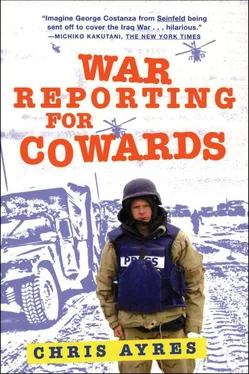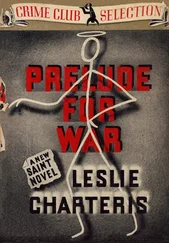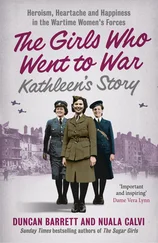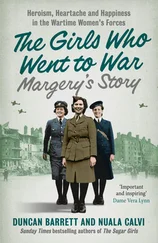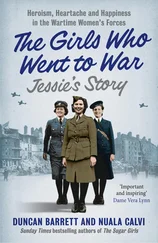Крис Айрс - War Reporting for Cowards
Здесь есть возможность читать онлайн «Крис Айрс - War Reporting for Cowards» весь текст электронной книги совершенно бесплатно (целиком полную версию без сокращений). В некоторых случаях можно слушать аудио, скачать через торрент в формате fb2 и присутствует краткое содержание. Город: New York, Год выпуска: 2005, ISBN: 2005, Издательство: Grove Press, Жанр: Биографии и Мемуары, Юмористические книги, nonf_military, на английском языке. Описание произведения, (предисловие) а так же отзывы посетителей доступны на портале библиотеки ЛибКат.
- Название:War Reporting for Cowards
- Автор:
- Издательство:Grove Press
- Жанр:
- Год:2005
- Город:New York
- ISBN:978-1-5558-4594-0
- Рейтинг книги:5 / 5. Голосов: 1
-
Избранное:Добавить в избранное
- Отзывы:
-
Ваша оценка:
- 100
- 1
- 2
- 3
- 4
- 5
War Reporting for Cowards: краткое содержание, описание и аннотация
Предлагаем к чтению аннотацию, описание, краткое содержание или предисловие (зависит от того, что написал сам автор книги «War Reporting for Cowards»). Если вы не нашли необходимую информацию о книге — напишите в комментариях, мы постараемся отыскать её.
War Reporting for Cowards — читать онлайн бесплатно полную книгу (весь текст) целиком
Ниже представлен текст книги, разбитый по страницам. Система сохранения места последней прочитанной страницы, позволяет с удобством читать онлайн бесплатно книгу «War Reporting for Cowards», без необходимости каждый раз заново искать на чём Вы остановились. Поставьте закладку, и сможете в любой момент перейти на страницу, на которой закончили чтение.
Интервал:
Закладка:
But even for me, the finance specialty was a compromise. I took it largely because I had a good contact on The Times ’s business desk—a result of me winning a student essay writing competition, cosponsored by The Times , on the oxymoronic subject of business ethics. I won the contest almost out of default, because only a handful of other students had bothered entering. I picked up the three-thousand-pound prize from Lindsay Cook, The Times ’s petite and fashionable business editor, at a surreal ceremony in London. My plan was to use the cash to pay for the City course, then beg Cook for a job on The Times ’s business desk. If she gave me one, I thought, I could later decamp to a more interesting section of the paper.
It was, of course, a catastrophically successful plan.
The finance geeks, being the lepers of the City journalism course, stuck together. There was Jamie, a tall, curly-haired five-a-side footballer who looked like a cross between a Greek god and Jesus Christ; Chris, a scholarly and urbane wit with an intimidating arsenal of degrees from Oxford University; and Georgina, an English rose whom everyone fancied. The honorary member of the group was Glen, an acerbic public schoolboy from Sussex who had already managed to get himself into The Times ’s graduate trainee program, allowing him to sit out the competitive shuffle of the other students. I admired Glen because he had a better Hugh Grant hairdo than mine, and also because of his devotion to a grungy Islington nightclub called The Garage, which he patronized every Friday and Saturday night without fail. Glen and I became good friends, sharing many a Garage night together and later a squalid apartment in Clapham.
There were upsides to being a finance geek. One of them was avoiding the dreaded “off-diary” classes given by Linda Christmas. The purpose of the classes was to teach students what hardworking reporters did when there were no scheduled press conferences taking place. In reality, of course, reporters get drunk and smoke cigarettes when there’s nothing to do. But Christmas would give each student a grid reference on a map of London, then instruct us to go to our location and find two “exclusive” stories. “Get out there and talk to people,” was her only advice on how to complete the task. “This is real journalism, folks. This is what you should be doing instead of rewriting press releases.” The grid reference always just happened to be in one of the most violent, piss-reeking slums of the East End. We had to get the stories, write them, and file them—all by 4:00 P.M. the same day. Some students gave up before even getting on the subway, knowing they would have to endure a “private talk” with Christmas—who always power-dressed in monochrome pantsuits—and also probably a public humiliation, in class the next morning. There were, however, more serious consequences to displeasing Christmas: She regularly had lunch with senior newspaper editors, who would quietly inquire about the performance of individual students.
To me, the jargon and statistics of finance reporting were infinitely preferable to Christmas’s “real” journalism. It might not have been a particularly glamorous form of reporting, but it seemed civilized and dignified—like a proper job. There was no way, I concluded, that a business reporter would end up being dispatched to anything more traumatic than a bankruptcy hearing.
“He’s here! The man himself!”
Jamie stood up and raised his pint glass as Robert Cole made his entrance. A low cheer went up from the table. Cole was in his usual outfit: wool suit, trench coat, and hat, the latter resembling a cross between a farmer’s flat cap and a French beret. He carried a leather briefcase. All this made him look like a 1930s Fleet Street caricature, and about a decade older than his real age, which was somewhere in the mid-thirties. The caricature was completed by the fact that Cole smoked Silk Cuts, twirled an umbrella, and affected an ironic Old Etonian accent, calling people “old boy” and “dear chap.” In fact, Cole had grown up in Surrey, and, like me, had gone to Hull University, a redbrick institution favored by socialist-worker types.
“Right-o chaps,” he said, removing his coat and sitting down. “Time to get this over with. Sorry I’m late: deadlines.”
I sucked on my pint of warm Stella Artois and felt my forehead become flushed with alcohol. I was a terrible boozer: a one-pint wonder. But it was important that I fight off the drunkenness. Today’s lunch, after all, was business, not pleasure. It was the culmination of nine months of tutorials, assignments, and disappointing grades, scrawled in red ballpoint across inkjet manuscripts.
Cole, a portly and sometimes moody fellow with a bald pate and round bookish glasses, was a senior financial editor of London’s Evening Standard . He was one of City’s “visiting” tutors, which meant he was a professional journalist who took one day off a week to teach a specialty class. Cole was also our hero. We read his columns in the Standard with awe. Cole’s technique was to tackle tedious money matters using the matey first-person persona of a pub raconteur. He used man-of-the-people metaphors and a slap of irreverence to make complex, technical arguments. Cole’s populist writing style had even produced a book, albeit one with the rather off-putting title of Getting Started in Unit and Investment Trusts . To us, Cole was a genius. He was also a celebrity. And we all desperately wanted his attention.
Like many journalists, Cole was an odd mixture of self-confidence and insecurity. Both traits, I later learned, are necessary in a good writer. Without the former, you would never believe your thoughts worthy of publication; without the latter, your thoughts would never be worthy of publication. Cole was also a Catholic who saw it as his duty to stand up for the private investor—the “little man.” I even suspected that he was a bit of a class warrior, what with his ironic “old chaps” and the fact he once referred to investment bankers as “those marble-halled bastards.”
On the first day of classes, Cole had blustered into our Victorianera lecture hall and scratched the names of some of his former students onto the blackboard. All of them were writers on national newspapers. Having expected finance reporting to be a career junkyard, our mood improved. Cole then told us that if we turned up for his weekly lectures and handed in our assignments on time, our names could also one day appear on the blackboard. And then came the best part: Cole said he always gave his favorite students a special end-of-term tutorial—which, to mark the occasion of our imminent graduation, would be held in the Red Lion.
No one skipped Cole’s lectures. The end-of-term tutorial, meanwhile, became our own private folklore. Word came back from other graduates of Cole’s class that it involved an all-day boozing session. Others said it held the secret to getting a job at a major paper. The subject, however, remained a mystery. We would spend entire shorthand classes speculating about its content.
The end-of-term tutorial, Cole promised us, would be a practical, hands-on “‘workshop,” unlike any of the other lectures he had given. It would be a guide on how to extract stories from secretive billionaires, arrogant bankers, and nerdish stock market analysts. The very thought of it made me shudder with excitement. If I became a journalist, would these business behemoths really want to meet me? And would they really give me “exclusive” stories? I had yet to learn that, if used correctly, a career in journalism can be a license to meet anyone, or do anything, if it takes your interest. In journalism, no expertise is required. In fact, I don’t think I truly understood that concept until I ended up in the Iraqi desert.
Читать дальшеИнтервал:
Закладка:
Похожие книги на «War Reporting for Cowards»
Представляем Вашему вниманию похожие книги на «War Reporting for Cowards» списком для выбора. Мы отобрали схожую по названию и смыслу литературу в надежде предоставить читателям больше вариантов отыскать новые, интересные, ещё непрочитанные произведения.
Обсуждение, отзывы о книге «War Reporting for Cowards» и просто собственные мнения читателей. Оставьте ваши комментарии, напишите, что Вы думаете о произведении, его смысле или главных героях. Укажите что конкретно понравилось, а что нет, и почему Вы так считаете.
